Mom: “Eli, my son loves music and says he wants to be a musician. Can you pleeeese convince him out of it?”
Eli: Young man, you must ALWAYS play music. The music you make brings beauty and positive spirit to the world. And goodness knows, we need more of it. Choosing a career in music is a separate decision. A successful music career relies on the cultivation of many skills both musical and non musical. To make a living or good wage as a musician, you need to develop skills in business and/or education. These may or may not be of interest to you. So, before putting all your eggs into the making-your-living-by-playing-music basket, spend time finding out where you are at in these other areas. Some ways you can do this are:
1) Volunteer or work in a classroom with kids or another setting where you can see how you feel about teaching. At 12, I worked as a junior sailing instructor and taught 7 year olds how to tie knots. I remember the thrill I got when my “students” learned and could do what I showed them. As I kid I loved sailing small boats. This led me to the opportunity to be a junior sailing teacher to teach 7 year olds and gave me a glimpse of my potential as a teacher. What other loves do you have that you can explore? There may be a way to connect them with your life in music down the road.
At 24, upon returning from my first gig on the road as musical director for Duke Ellington’s Sophisticated Ladies 10th Anniversary National Tour directed by Mercedes Ellington, I volunteered at the West Side YMCA Day Camp. They asked me what I did. Upon learning I was a musician, they hired me as music teacher for Kinder Camp at $25/hour. At the time I had no idea how to talk to three year olds. I met with other Nursery School music teachers, took a three-day teacher training with Betsy Blachly at Bankstreet College and by the fall was hired as music teacher for the Co-op Nursery School at double my initial pay rate. I developed a jazz curriculum for 2-5 years olds (being able to sit up was the only prerequisite to my class) singing songs like “Oo Shoobie Doobie,” “Ain’t Nobody Here But Us Chickens” and “Potato Chips.” I also sang folk tunes, told stories I learned from my childhood hero Pete Seeger, and finger plays and dances. I improvised a lot and learned to be present in a way with students that had an indelible effect on me. I had a poster of Dizzy Gillespie smiling in my room and used to say a prayer to him before the kids would come. “Dizzy, please show me what to do with these kids today.” It worked out well. I taught two and a half days a week while playing pass the hat gigs in East Village and touring with Glenn Miller Band and later, Illinois Jacquet. I was blessed by having mentorship by Chicago Drummer Walter Perkins, who was like a second father to me, and played in his band all through this period and beyond. Teaching young children during this time helped my income and helped me grow as a musician and person.
2) Read books on the music business, take a business course on or off line, intern or work at a music business such as a management company, music festival, cultural institution, record company, radio station or magazine. When I discovered jazz I was 12 years old. I found the music at 88.3 on the FM dial, WBGO. I was mesmerized and hungry to learn more. I took Count Basie records out of the library and listened daily with great focus to the Smithsonian Collection of Classic Jazz. So knocked out by what I heard, I could never understand why more of my peers and community in central New Jersey were not as obsessed as I was about jazz. At 13, I had my first radio show on my high school’s radio station. We were lucky to have one. At 14, I took on the weekly jazz show and began my career in earnest as a jazz advocate. At 18, this led to me hosting my first professional radio show on NPR affiliate WBGO where I had started months earlier as a Board Operator earning minimum wage. The program director Wylie Rollins gave me a chance on the air because of three things: 1) I showed up when I was supposed to. 2) I was on time 3) I had great enthusiasm for jazz. Whereas #3 was important, do not underestimate the power of #1 and #2. A good degree of success in life can be achieved by consistently showing up and being on time.
I also studied music business tapes and books and asked a lot of questions of my elders. This was painful at first. Learning about the stark realities of the music business is so drastically different than the thrill of playing the music, it can be very disillusioning. Radio was more fun and so I focussed my attention there. And as the legendary R & B singer Ruth Brown told me. “Eli, get some joy out of life or life will take the joy out of you.” Parents and Students–HAVING FUN AND BEING PRACTICAL CAN GO HAND IN HAND. I learned a lot from being engineer/producer of Jazz From the Archives, a two-hour jazz history show hosted by leading historians Dan Morgenstern, Ed Berger, Loren Schoenberg and Vincent Pelote. This experience introduced me to the rich world of jazz pre 1945 like Johnny Hodges, Ben Webster, Mary Lou Williams, Benny Carter, Jelly Roll Morton, Louis Armstrong. Very soulful stuff. I also produced Portraits in Blue with Bob Porter for five years deepening my knowledge and love for the blues. Artists like Willie Dixon, Otis Spann, Lowell Fulson, T Bone Walker, Bessie Smith, Ruth Brown, Koko Taylor and Johnny Copeland. I met and interviewed many musicians during this time and gained insight into their lives as musicians and people including: Benny Carter, Roy Eldridge, Dizzy Gillespie, Marian McPartland, Ray Barreto, Ruth Brown, Art Blakey, Abbey Lincoln, Walter Bishop Jr, Abdullah Ibrahim and Barry Harris. Barry Harris became a great teacher and later, friend to me. At 24 years old, I got my own slot on the air hosting Sunday mornings from 6-10am. I played piano and guitar recordings and called it Sunday Morning Harmony. The show continues to run today. I had great energy in those days and made good use out of it. I would play with Walter Perkins at the Skylark in Queens Saturday night 10:30pm-3:30am, then drive to WBGO’s studios in Newark, New Jersey to sleep on the couch one hour, then go on air 6-10am, then sometimes drive to Westfield, NJ to play a brunch with my trio Solar. Crazy days. And a lot of learning going on. Engaging the energy of youth by following the things that gave me joy and investing time in them helped me develop invaluable skills and contacts to become established as a professional musician.
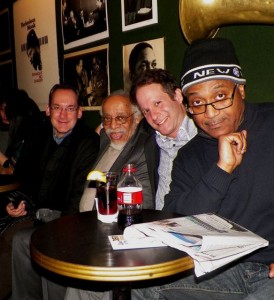
Court of Barry Harris with Michael Weiss, Barry Harris, Eli Yamin and Lafayette Harris Jr. at Village Vanguard, NYC
And yes, I did formal training too. I studied for a BA at Rutgers College, University of New Jersey with a major in music, minor in Political Science, and had the good fortune to take private lessons with Kenny Barron and Keith Copeland. In addition, I sought out additional teachers outside of Rutgers to gain multiple perspectives and took lessons with the best teachers I could find including Fred Hersch, John Kamitsuka, Jaki Byard and Kenny Werner. I learned invaluable lessons on the band stand at the Skylark Lounge in Queens performing with the Walter Perkins Trio and backing up local legends who would come through like C.I. Williams and Gwen Cleveland. We played a lot of blues at the Skylark and I was happy as a clam doing what I loved and receiving great encouragement from the community. I am eternally grateful for the support I received from so many people all along the way. It reminds me of a passage in Duke Ellington’s Autobiography, Music is My Mistress.
“Every time I reached a point where I needed direction, I ran into a friendly advisor who told me what and which way to go to get what or where I wanted to get or go or do….Every intersection in the road of life is an opportunity to make a decision, and at some I had only to listen.”
This pathway from student to professional musician was gradual, unplanned, unpredictable, and at times nerve racking. I would expect many musicians to report similar feelings in their own path. I was fortunate to always find work opportunities. For musicians, to be working, is a good goal in and of itself. It is best if you can follow what you love to find the work. Be open to different situations and be prepared to pay some dues. You might find success where you least expect it like I did teaching three year olds finger plays or running tape machines in the middle of the night…
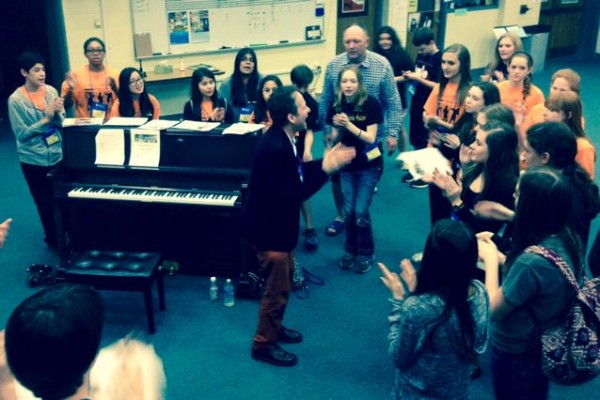
Eli Yamin teaches workshop at Junior Thespians Conference in Dallas, Texas. “Making a Soulful Sound with Nora’s Ark, the jazz musical.”

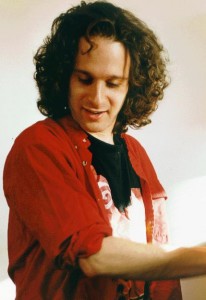
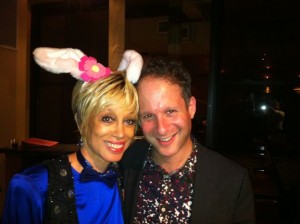
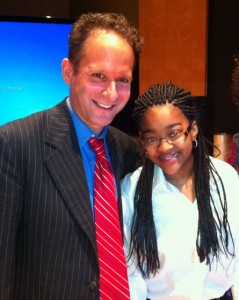
Eli,
Thanks for sharing your art,talent,humor and view point! As a fellow artist I appreciate it, probably see you Sunday!
Sue